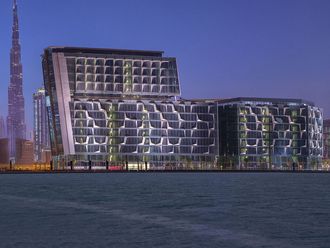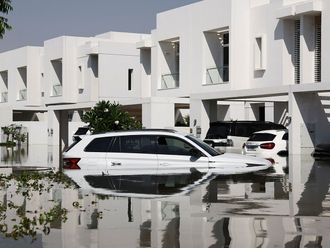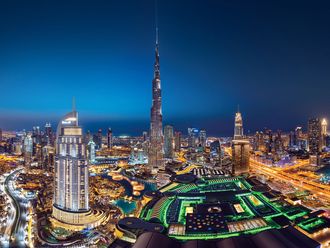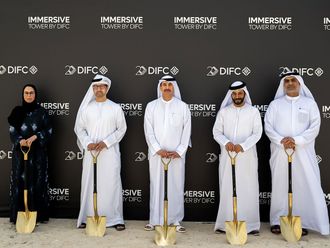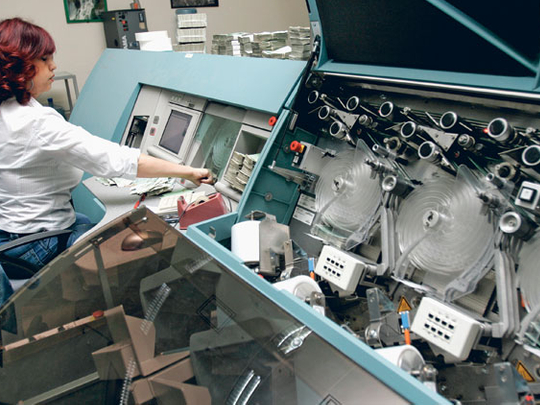
Beirut: When Mira and Tamam, an engaged Lebanese couple, started apartment hunting for their future home, they were concerned that the price tags on available houses were over what they had expected to pay for an apartment.
"It all depended on the area where we were looking," Mira Al Orr told Gulf News. "Basically it was hard to find a good apartment at a good price."
In December last year, the couple finally found accommodation they liked and could afford: a 148 square metre apartment for $85,000 (Dh312,140) in southern Lebanon. Four months after the couple was able to get a housing loan, the same apartment was selling for $120,000. Property prices had gone up almost everywhere and the couple had no choice but to buy the house at its new market value.
While couples like Mira and Tamam complain about the surge in property prices, the experts say it's all good news for Lebanon.
"We had important increases in property prices over the past two to three years, but we don't have a real-estate bubble that is about to burst," said Marwan Barakat, head of research at Banque Audi, one of the largest banks in Lebanon.
"In 2006 and 2007, before the property prices started to go up, the prices were irrational," Barakat said. They were very low by both international and regional market standards. "We had a very undervalued arena when the property market was concerned."
Following the 2006 war, coupled with confidence and security, the market has been able to retain its rational levels. It's an increase driven by real demand, he said.
"It's not that you have investors that are buying property and land just to realise capital gains and get their investments out in a year or less," he said. "It's not short term. It's a real long-term investment."
Organic growth
Barakat explained that the growth in Lebanon's population at the rate of 1 to 1.5 per cent each year translates into around 14,500 new families every year.
"This is organic growth alone," he said. "And the banks are more than happy to meet the demand on housing loans because they're interested in lending opportunities in the domestic economy."
On the other hand, the economy is also growing at a high pace, Barakat said. "We had 9 per cent growth last year for the second consecutive year. The IMF is also estimating a minimum of 6 per cent growth rate this year."
What makes the majority of these investments long term is the fact that the buyers are predominantly Lebanese — both residents and expatriates.
Marwan Hamadeh, managing director of Sogetim, a real estate brokerage, agrees with Barakat. When it comes to investment, the Lebanese expatriates in Africa, the United States and the Gulf make up the biggest contribution, he said. "When they come to Lebanon, they see there's an opportunity for doing business."
However, the majority of these projects are small- and mid-sized, such as residences of three to four bedrooms, and hotels under 100 rooms.
He described the increase in prices over the past two years as a natural growth of a normal market.
"If the price of a piece of land in let's say Bsalim [in Mount Lebanon], was worth $500 per square metre, it's now $800 per square metre. What used to be $2,000 per square metre is now $2,200. The difference is about 10 per cent higher and not more than that and anything between 8 to 10 per cent is acceptable," he said.
But Emad Al Choueiri, Group Corporate Vice President of Plus Properties, told Gulf News that in some places the prices have actually doubled depending on the significance of the location.
There's definitely a large number of real estate investment opportunities in Lebanon right now, in commercial and residential buildings and in the hospitality sector, Al Choueiri said.
"Plus Properties in this context have already invested during the past few years in the development of some real estate mega projects," Al Choueiri said.
This year's summer season is also expected to be busier than last year, bringing the business volume in Beirut and the surrounding areas up to 30 per cent more than what it was before, Hamadeh said.
"What's booming is the Horeca [Hotel — Restaurant-Café] industry," he said. "If you go out to have dinner in Beirut, it's full everywhere you go. If you want to rent a car, they're all rented. If you want an apartment for rent, you can't find one."
"The market is not witnessing a bubble," Barakat reassured. "That's very important for those who want to invest."


